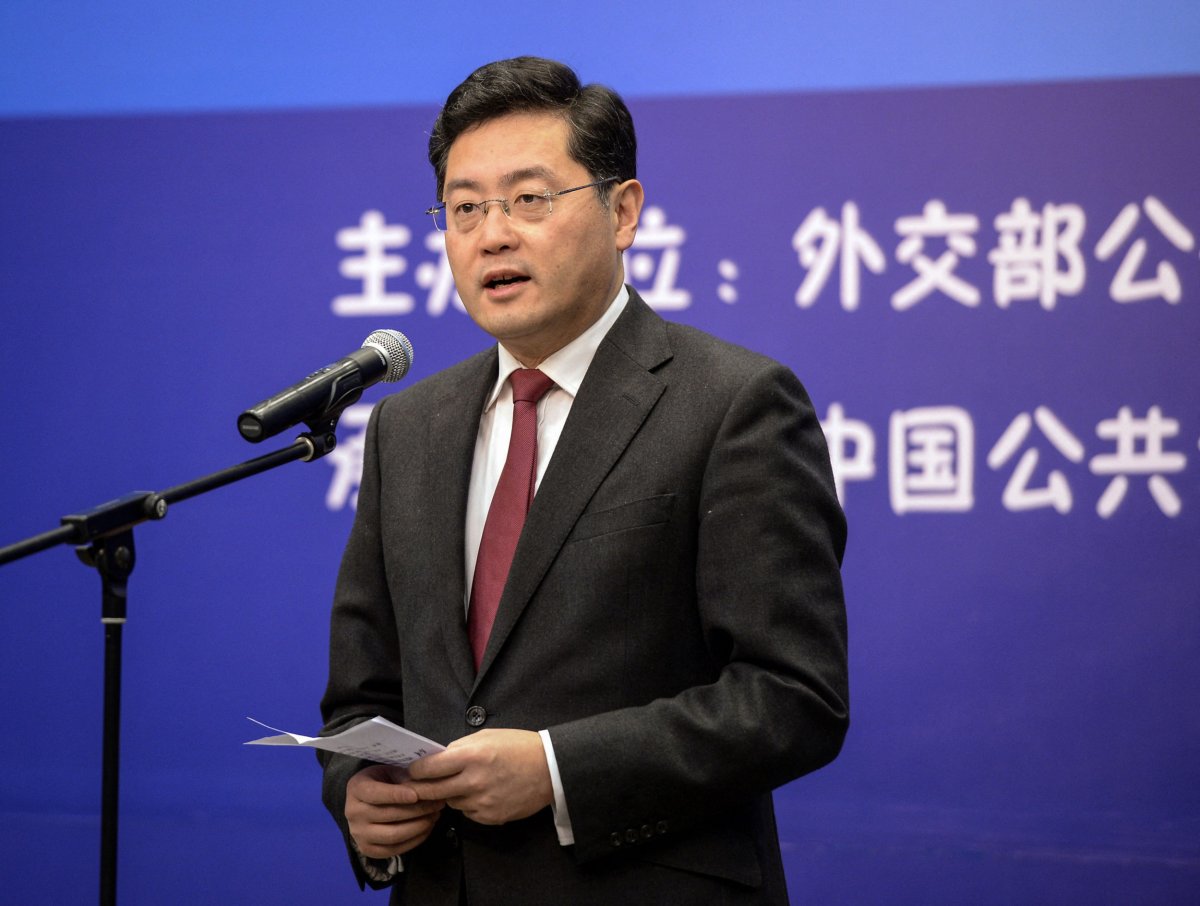While Russia has been under the international spotlight recently as the world watches tensions build over a potential invasion of Ukraine, China has issued an explicit warning to the U.S. about Taiwan.
Qin Gang, China's ambassador to the U.S. said in an interview with NPR on Thursday that the U.S. might face "military conflict" with China over the future of Taiwan.
Qin, who was appointed to his post in Washington, D.C. as ambassador in July, warned the U.S. of being part of Taiwan's plan to seek independence. The ambassador noted that "the Taiwan issue is the biggest tinderbox between China and the United States."
Taiwan has maintained a separate government from mainland China since 1949, but the Chinese government considers the island a rebellious province, not an independent country.
China hasn't ruled out the use of military force to achieve its goals in rejoining Taiwan, but the Taiwanese government has constantly vowed that it will defend itself if tensions between the two escalate. Taiwan claims the island as its own territory.
While the U.S., under its "one China" policy does not officially recognize Taiwan as an independent country, it has pledged to help defend Taiwan in case of an attack.
"The 1979 Taiwan Relations Act provides the legal basis for the unofficial relationship between the United States and Taiwan, and enshrines the U.S. commitment to assist Taiwan in maintaining its defensive capability," said the U.S. Department of State in a U.S. Relations with Taiwan Fact Sheet. "The United States insists on the peaceful resolution of cross-Strait differences, opposes unilateral changes to the status quo by either side, and encourages both sides to continue their constructive dialogue on the basis of dignity and respect."
"If the Taiwanese authorities, emboldened by the United States, keep going down the road for independence, it most likely will involve China and the United States, the two big countries, in a military conflict," Qin said on Sunday, according to NPR.
Despite warning of a potential military conflict, Qin said that China doesn't wish to go to war, but he confirmed that in the case that Taiwan decides to officially declare independence, "China will not commit to giving up the un-peaceful means for reunification because this is a deterrence."
"People on both sides of the Taiwan Straits are Chinese, so we are compatriots. So the last thing we should do is to fight with compatriots. And we will do our utmost in the greatest sincerity to achieve a peaceful reunification," he said, and noted that China's "most important relationship" is with the U.S.
On Sunday, China flew 39 warplanes into Taiwan's air defense identification zone (ADIZ). The planes included 24 J-16 fighter jets, 10 J-10 fighter jets, two Y-9 transport aircraft, two Y-8 anti-submarine warning aircraft, and one nuclear-capable H-6 bomber.
In response, Taiwan sent out its own military aircraft to monitor the activities by China's jets and the Taiwanese Air Force tracked the People's Liberation Army planes on its radar.

Taiwan's Defense Ministry said in a statement on Sunday that this was the largest fleet of airplanes that China sent towards the island this year.
On Thursday, Chinese Foreign Minister Wang Yi said during a call with Secretary of State Antony Blinken that President Biden responded positively to Xi Jinping's "three principles of mutual respect, peaceful coexistence and win-win cooperation" when China's leader proposed the guidelines during their high-level summit last November.
"However, what the world sees is that the tone of U.S. policy toward China has not undergone substantive change; nor [have] President Biden's statements been truly implemented," Wang said.
"The U.S. continues its wrong words and actions against China, causing new shocks in bilateral relations," Wang told Blinken, according to a lengthy readout published by China's Foreign Ministry.
Wang urged the U.S. to "stop interfering in the Beijing Winter Olympics, stop playing with fire on the Taiwan issue and stop creating various anti-China 'cliques' to contain China."
Uncommon Knowledge
Newsweek is committed to challenging conventional wisdom and finding connections in the search for common ground.
Newsweek is committed to challenging conventional wisdom and finding connections in the search for common ground.
About the writer
Fatma Khaled is a Newsweek weekend reporter based in New York City. Her focus is reporting on U.S. politics, world ... Read more
To read how Newsweek uses AI as a newsroom tool, Click here.








